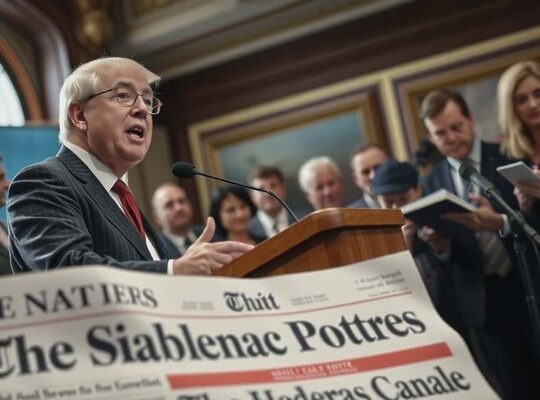Sharp divisions are emerging within the CDU/CSU parliamentary group regarding the government’s proposed pension reforms, fueling a potentially significant challenge to the current coalition’s policy direction. Following initial dissent from the party’s conservative “Young Group” influential economic policy voices are now openly demanding a renegotiation of the calculation basis for pension adjustments beyond 2031.
The call for change stems from concerns that the current draft, spearheaded by Labour Minister Bärbel Bas (SPD), commits the government to maintaining a minimum pension level of 48% until 2031 and establishing subsequent increases at the same level. This commitment, critics argue, exceeds the scope initially stipulated in the governing coalition agreement and carries potentially unsustainable financial implications. The German Pension Insurance Agency has estimated that the proposed framework could trigger additional costs of €115 billion by 2040.
“The coalition agreement is, in my view, unequivocal: the 48% pension level benchmark must hold until 2031. Everything beyond that requires fresh negotiation” stated Sepp Müller, Vice-Chairman of the CDU/CSU parliamentary group. His comments underscore a growing sentiment that the government is overextending its commitments at a time when budgetary flexibility is increasingly limited.
CDU parliamentarian and economic policy expert, Christoph Ploß, echoed this concern, highlighting the need for a more fiscally responsible approach to social welfare. “The future viability of our nation is inextricably linked to a functioning social state and a fair, intergenerational pension system” Ploß stated. “Given shrinking budgetary leeway at the federal level, we cannot continue to authorize new social benefits indiscriminately. We need a targeted social state instead.
This internal CDU/CSU pressure represents a potentially critical setback for Labour Minister Bas and her proposed reforms. While the coalition agreement remains the official framework, the escalating dissent within the CDU/CSU raises questions about the long-term stability of the policy and could force significant concessions or a substantial revision of the planned pension package, potentially triggering broader political ramifications within Germany’s governing landscape. It also underscores the ongoing tension between the need to maintain a robust social safety net and the realities of increasingly constrained public finances.












